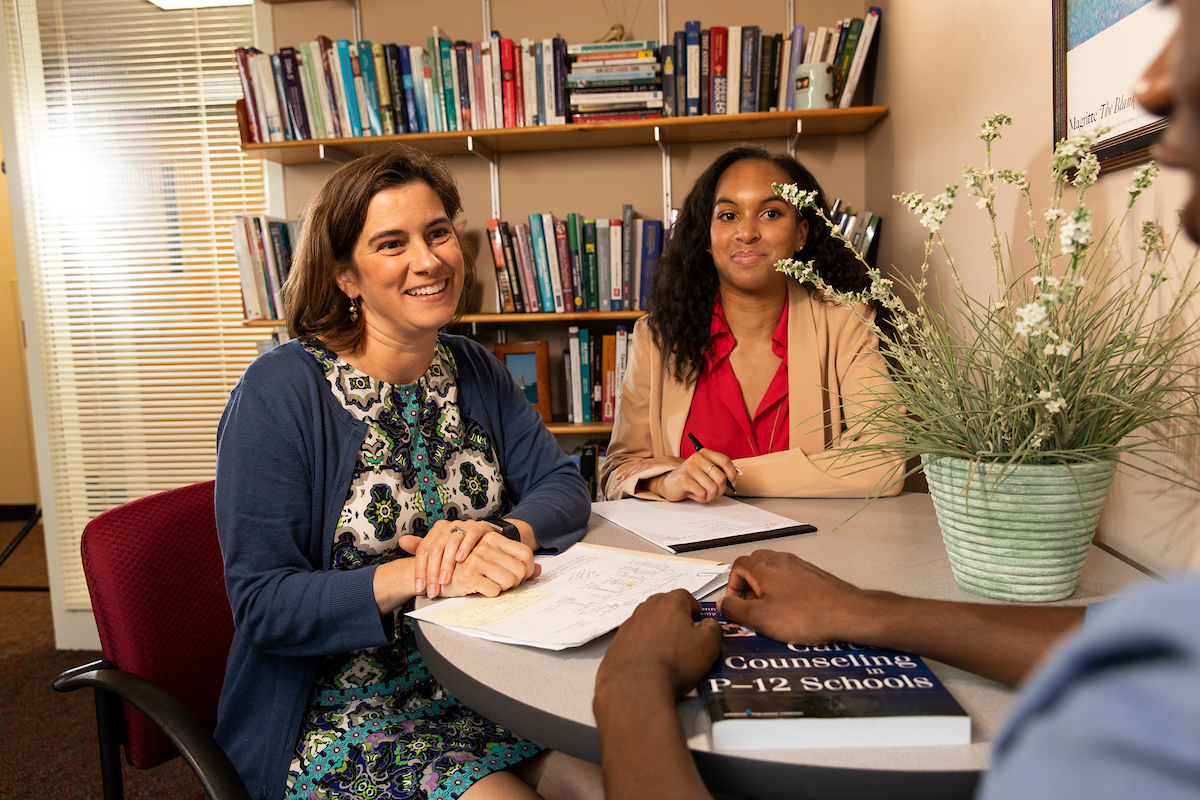Wednesday, Jul 17, 2019
How to strengthen assessment is a key area of focus for Dr. Christina Peterson
by Keith Fernbach
At Rider University, Dr. Christina Peterson teaches graduate courses in counseling, school psychology and special education. Her primary focus is on how to implement the use of data, research and assessment into these fields, which is critical to helping practitioners quantitatively track progress in clients.
“No single treatment works for everyone," she says. "Assessments enable us to measure incremental progress toward a final goal and to make adjustments if our approach isn’t serving the person in front of us.”
One of Dr. Peterson’s most notable achievements has been her work with the National Assessment of Educational Progress (NAEP), an organization that establishes national standards for U.S. students.
“There was a lot of suspicion among teachers that these standards didn’t really match what was happening in the classroom,” she says.
Dr. Peterson helped to re-examine the process by soliciting the input of teachers and comparing the effectiveness of two standard-setting methods: the Mapmark Method and the Anghoff Method. Her research concluded that both methods were reliable, but Mapmark was both less costly and rated higher by teachers. Mapmark is now being used by NAEP as well as an increasing number of state boards of education.
As a professor at Rider, Dr. Peterson is not only an instructor but also a mentor and counselor to her students. “In my courses at Rider, students are predominantly women," she says. "We hear some negative messaging about women’s skills or capabilities in the sciences. Unfortunately, we also know that sometimes math and science are taught differently to girls than they are to boys in ways that may be less encouraging of initiative taking.”
Helping to counteract such cultural messages that may hold her students back is part of her role as a professor. She structures her courses so that students receive extensive support initially and then she gradually pulls back as they develop skills to operate independently as a scientist-practitioner, much like how a parent teaches a child to ride a bike.
"My goal each semester is to have students discover that, instead of a handicap for them, research is a strength," Dr. Peterson says.
Over her career, Dr. Peterson has authored more than two-dozen publications and received numerous academic honors. As a college student though, she almost chose to pursue a career in music. She even performed twice as a choir member at Carnegie Hall but eventually realized that she enjoyed rehearsing much more than performing.
Even though Dr. Peterson ultimately didn't pursue music, it taught her an enduring lesson.
“When we were learning a new piece, if I didn’t know a note, I would just sing it quietly, so as not to disrupt the ensemble,” she says. “One day, my professor said to me, ‘that’s the note you sing the loudest because then you’ll know for sure if you know it or not.’ To this day, I use what he taught me when I’m working with my research and statistics students. ‘If you don’t know an answer, you shouldn’t stay quiet,’ I tell them. ‘That’s when you should be singing the loudest, so we can hear when you need help.’”

